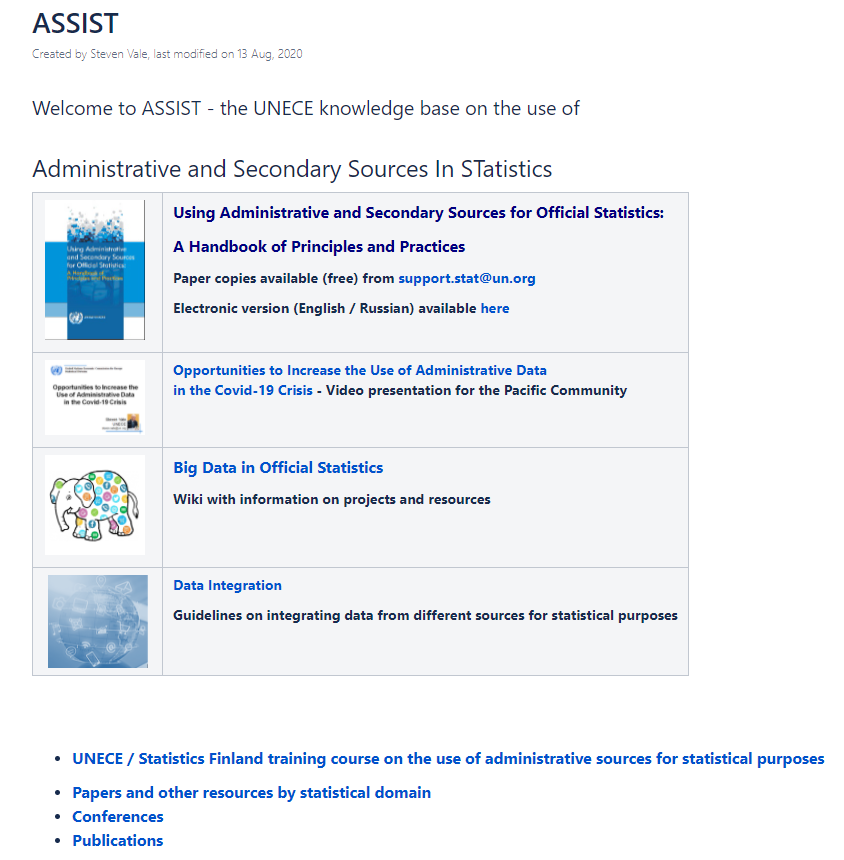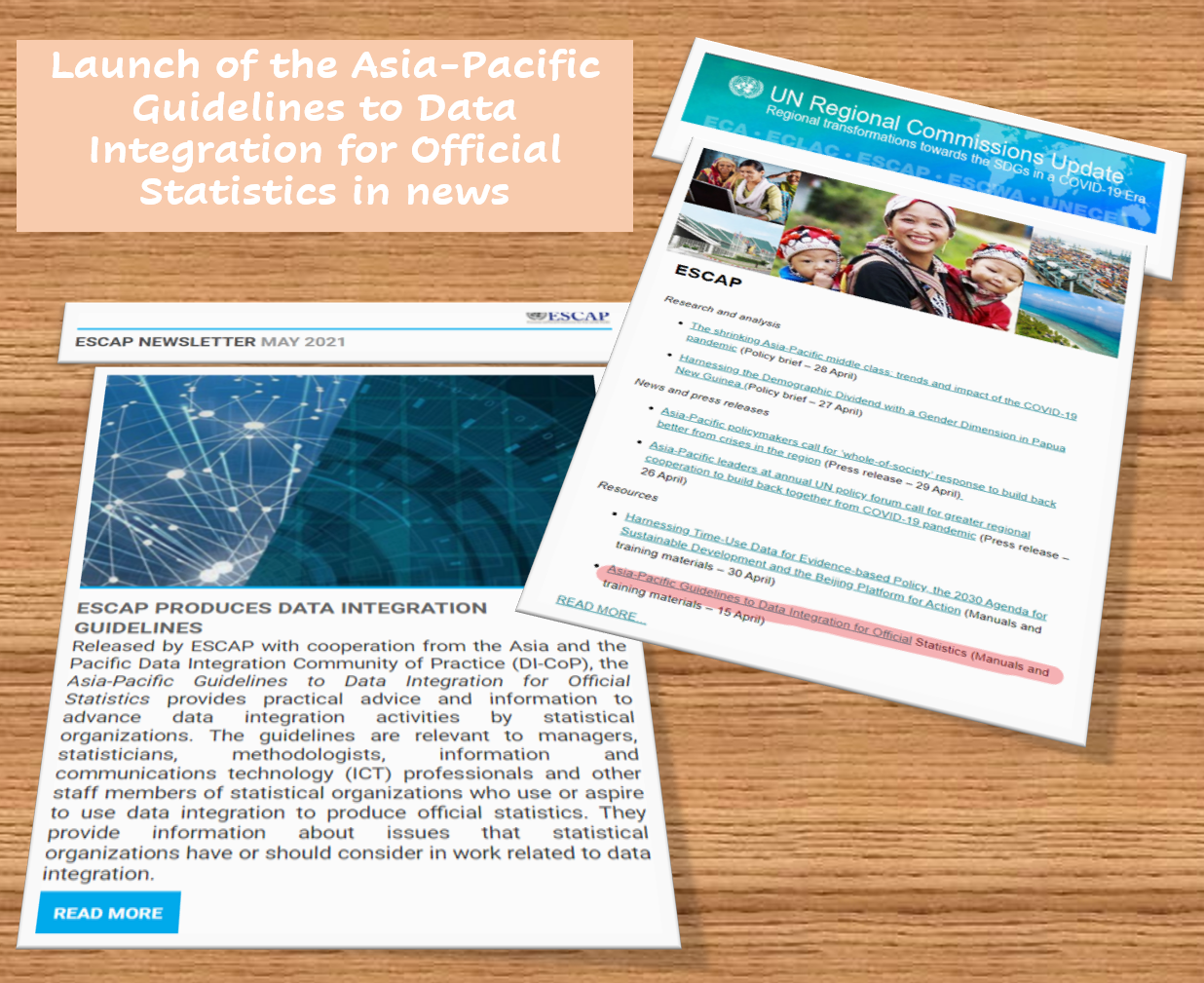Monday, 31 May 2021 from 12:00-13:00 (GMT +7), verify your time here.
Please register at this link.
>>>>See other Asia-Pacific Stats Café Series

Monday, 24 May 2021 from 13:00-14:00 (GMT +7), verify your time here.
Please register at this link.
>>>>See other Asia-Pacific Stats Café Series

Monday, 17 May 2021 from 12:00-13:00h (GMT +7), verify your time here.
Please register at this link.
>>>>See other Asia-Pacific Stats Café Series


Are you wondering how to exploit administrative and secondary sources in Statistics?
Here is the link to the ASSIST wiki by UNECE, with the training course and other related materials on using administrative and secondary sources - https://statswiki.unece.org/display/adso/ASSIST.
Launch of the Asia-Pacific Guidelines to Data Integration for Official Statistics is reflected in UN newsletters
See following links:


Some new online courses have been developed via a collaboration between the UN Privacy Preserving Techniques Task Team, Oxford University and OpenMined. A series of four courses is planned; the first two are ready for sharing:
- Our Privacy Opportunity – (Beginner level; 7.7 hours; Free) Privacy infrastructure is changing how information is managed in society. In this course you will learn how it creates both opportunity and disruption within nearly every corner of society and how you can join this next great wave of innovation. By the end of this session, you will be able to:
- Understand how privacy is transforming the world
- Learn how privacy-preserving AI can be used in products and services
- Foundations of Private Computation – (Intermediate/Practitioner level; 60 hours; Free) In this session, you will learn how to use federated learning to access and manipulate data on remote devices. You will work with Syft and Duet to analyse data and train a simple deep learning model. By the end of the session, you will be able to:
- Build privacy-preserving techniques from scratch
- Use federated learning to work with protected data on remote devices
- Understand the maths behind encrypted computations
- Use differential privacy budgeting with PyTorch models
Powered by a free Atlassian Confluence Community License granted to https://www.atlassian.com/software/views/community-license-request. Evaluate Confluence today.
- Kolekti ThemeBuilder Powered by Atlassian Confluence 8.5.9
- Kolekti ThemeBuilder printed.by.atlassian.confluence
- Report a bug
- Atlassian News